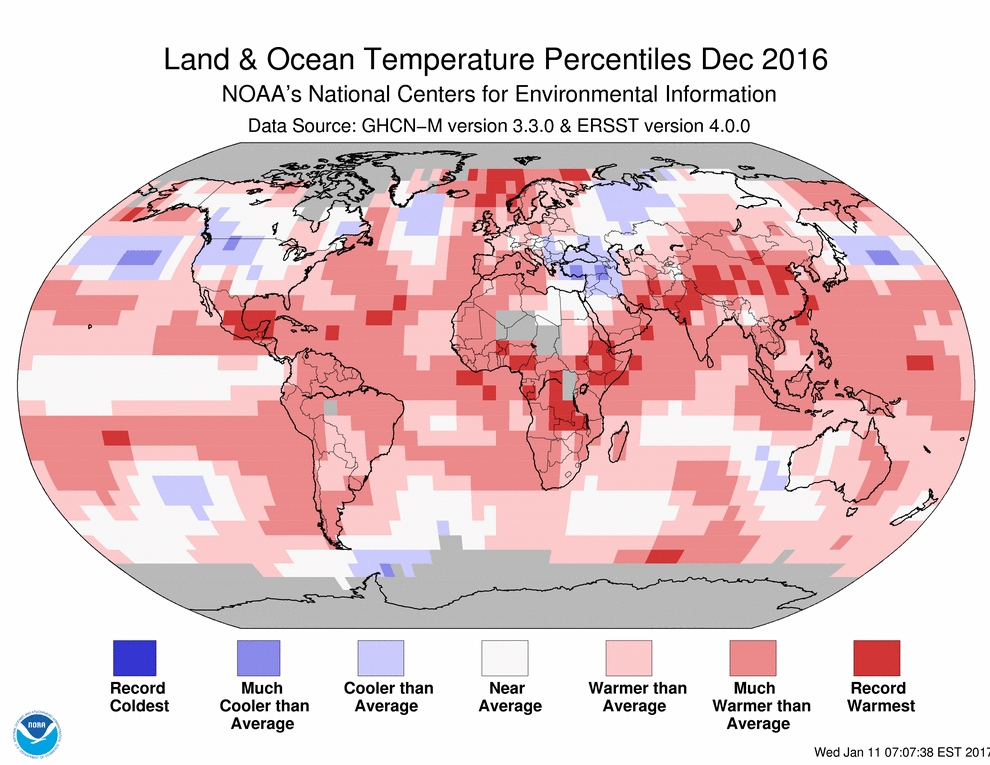 In the face of this cold spell that chills Portugal, it may seem contradictory to speak of an increase in the planet's global temperature. But it is not. The location does not represent the entire surface of the planet.
In the face of this cold spell that chills Portugal, it may seem contradictory to speak of an increase in the planet's global temperature. But it is not. The location does not represent the entire surface of the planet.
In fact, data from three international agencies, released this Wednesday, indicate that for the third consecutive year the global temperature of the planet has broken records, for the worse.
Reports released by the US space agency (NASA), the US government agency for the atmosphere and the oceans (NOAA) and the UK Met Office reveal that the year 2016 was the warmest since 1880, the year of the first records of the planet's temperature. By planet temperature is meant the global average surface air temperature on land and at sea.
It should be noted that, in the 2005st century, there have already been five years in which records of temperature increase were broken: 2010, 2014, 2015, 2016 and XNUMX.
The data now released also show that the months between January and August 2016 were, individually, the hottest since 1880, as you can read on the NOAA website.
In the summary of this report, it can be read that the planet's average temperature was 0,94 degrees Celsius higher than the average temperature recorded in the 1,43th century: the global average temperature recorded on the continents was 0,75 degrees Celsius higher than that of the last century, and that recorded in the oceans was XNUMX degrees Celsius higher than in the XNUMXth century.
The reports also confirm that this global temperature rise is related to the recorded increase in the concentration of carbon dioxide in the atmosphere caused by human activity.
Carbon dioxide levels are the highest for 4 million years in the Pliocene. At that time, the human species did not exist, living in Africa the ancestors of Australopithecines, of which Lucy is the most famous fossil.
In view of these data, we should be even more concerned: the upward trend is clear and its effects on the climate, and therefore on ecosystems, are increasingly notorious.
For example, the weather phenomenon “El Niño” was particularly intense in the Pacific Ocean last year.
Also alarming are the effects of this increase on the poles: in the Arctic, the extent of ice continues to decline to its lowest levels ever, while in Antarctica, last year registered the second lowest level ever observed.
The timid decline in greenhouse gas emissions by some countries does not hide the excesses of the past and the unbearable pollution in some regions of China, for example.
We don't have much to choose from. But we know that some governments persist and continue to ignore the reality of global warming. Despite the historic agreement in Paris, signed by 200 countries in 2015, we are still close to surpassing the limits of the environmental goals proposed then.
Among us, the behavior of each one can make a difference, reducing energy consumption and having more environmentally friendly behavior in general.
Author Antonio Piedade
Science in the Regional Press – Ciência Viva


















Comments